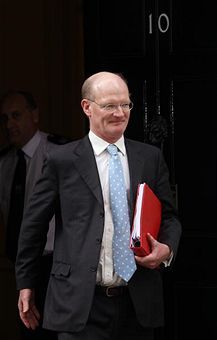 The Gap Year has been declared dead. It’s A-levels day today, and the annual
scramble for university places has been intensified ahead of next year’s tuition fees rise. According to this morning’s Times (£), the last count had 669,956 pupils sprinting after 470,000 vacancies. An estimated 50,000 students
with adequate grades will not enter higher education this year as many universities have raised entry requirements to manage increased demand. This means that competition during clearance will be
even more stiff than usual, particularly as universities will offer many fewer clearing places according to various surveys. Needless to say, UCAS’ website appears to have collapsed under the
weight of this unparalleled interest.
The Gap Year has been declared dead. It’s A-levels day today, and the annual
scramble for university places has been intensified ahead of next year’s tuition fees rise. According to this morning’s Times (£), the last count had 669,956 pupils sprinting after 470,000 vacancies. An estimated 50,000 students
with adequate grades will not enter higher education this year as many universities have raised entry requirements to manage increased demand. This means that competition during clearance will be
even more stiff than usual, particularly as universities will offer many fewer clearing places according to various surveys. Needless to say, UCAS’ website appears to have collapsed under the
weight of this unparalleled interest.
The irony is that if a pupil goes to university this year, they will pay more in fees once they’ve graduated, because the earnings threshold for repayments to begin will be raised from £18,000 to £21,000 for students of the 2012 vintage. The general picture is chaotic. It is hoped that next year will be easier, particularly as word of mouth and official studies should ensure that prospective students are better informed about courses, institutions and costs than they were this year, which may force some universities to lower their charges.
Meanwhile, the chorus of disquiet about the state of education, which accompanies the publication of A-levels each year, has reached an unparalleled volume and will continue to do so in the letters pages of newspapers in the coming days. The government is adding to the cacophony. David Willetts, the higher education minister, has criticised UCAS’ tariff system for awarding the same weight to ‘tough academic subjects’ like Maths and vocations-come-pass-times such as Dance. Willetts wants greater rewards for students who succeed in their study of challenging disciplines, echoing Michael Gove’s emphasis on Maths, languages and sciences. Willetts also added that industry apprenticeships should gain formal recognition by UCAS, as a further aid to youth employment.
Much of this is a proxy for the wider debate about school standards and A-level grading. The government is encouraging schools to adopt the baccalaureate to foster competition in qualifications, while its more obvious reforms to education structures are designed to raise standards across the board. These are long-term reforms; in the meantime, Brian Lightman of the Association of School and College Leaders has said that university admissions tutors should be given access to grade marks in order to ease their selections and ensure that those who will pay increased fees are sufficiently capable. Perhaps Willetts will address this.






Comments